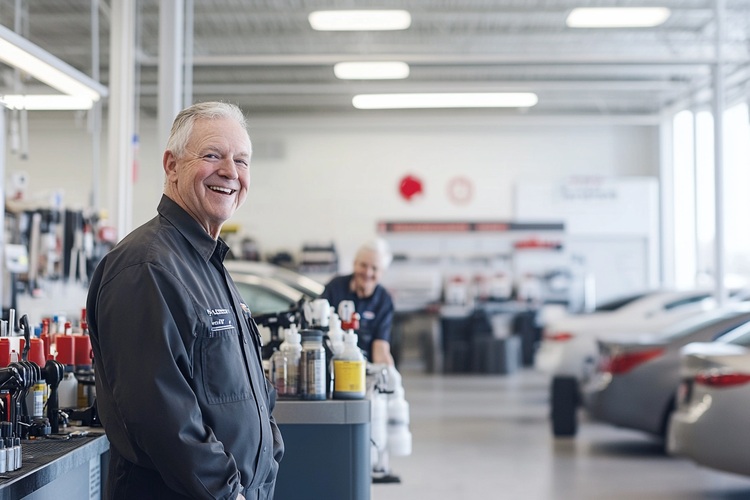Learn About Repossessed Loaders, Their Costs & Key Considerations
Repossessed loaders offer construction companies an opportunity to acquire heavy equipment at reduced prices when original owners default on financing agreements. These machines, ranging from compact skid steers to large wheel loaders, become available through auctions, dealerships, and financial institutions seeking to recover outstanding debts. Understanding the repossession process, associated costs, and potential risks helps buyers make informed decisions when considering these pre-owned equipment options for their construction operations.

The construction equipment market includes various purchasing options, with repossessed loaders representing a significant segment for budget-conscious buyers. When equipment owners fail to meet their financing obligations, lenders reclaim these machines and sell them to recover their investments. This process creates opportunities for construction companies, contractors, and equipment dealers to acquire quality machinery at prices below market value.
What are Repossessed Loaders
Repossessed loaders are construction machines that financial institutions, banks, or leasing companies have reclaimed due to payment defaults. These vehicles include various types such as wheel loaders, track loaders, skid steer loaders, and backhoe loaders. The repossession occurs when borrowers cannot maintain their payment schedules, prompting lenders to exercise their legal rights to recover the collateral. Once reclaimed, these machines undergo evaluation and are typically sold through auctions, dealerships, or direct sales to minimize financial losses.
Repossessed Loaders Costs
Pricing for repossessed loaders varies significantly based on machine type, age, condition, and market demand. Compact skid steer loaders may range from $15,000 to $35,000, while larger wheel loaders can cost between $75,000 and $200,000. Track loaders typically fall within the $40,000 to $120,000 range, depending on size and specifications. Backhoe loaders generally price between $45,000 and $95,000. Additional costs include transportation, inspection fees, and potential repairs that may total 10-20% of the purchase price.
Key Considerations Before Getting Repossessed Loaders
Purchasing repossessed equipment requires careful evaluation of several factors. Machine history and maintenance records may be incomplete or unavailable, making condition assessment challenging. Buyers should conduct thorough inspections, including engine performance, hydraulic systems, and structural integrity. Title verification ensures clear ownership transfer without liens or legal complications. Warranty coverage is typically limited or nonexistent, placing repair responsibilities on the buyer. Transportation logistics and associated costs must be factored into the total investment.
Pros and Cons of Repossessed Loaders
Repossessed loaders offer substantial cost savings compared to new equipment, often 30-50% below retail prices. This affordability allows smaller contractors to access quality machinery that might otherwise exceed their budgets. Immediate availability eliminates waiting periods common with new equipment orders. However, disadvantages include limited or no warranty protection, potential hidden mechanical issues, and incomplete maintenance histories. Financing options may be restricted, and resale values could be lower than comparable machines with complete documentation.
| Equipment Type | Provider | Cost Estimation |
|---|---|---|
| Compact Skid Steer | Ritchie Bros Auctioneers | $15,000 - $35,000 |
| Wheel Loader (Medium) | IronPlanet | $75,000 - $150,000 |
| Track Loader | MachineryTrader | $40,000 - $120,000 |
| Backhoe Loader | Equipment Auctions | $45,000 - $95,000 |
| Large Wheel Loader | BigIron Auctions | $125,000 - $200,000 |
Prices, rates, or cost estimates mentioned in this article are based on the latest available information but may change over time. Independent research is advised before making financial decisions.
Repossessed Loaders Benefits
The primary advantage of purchasing repossessed loaders lies in significant cost reduction, enabling construction companies to expand their fleet without substantial capital investment. These savings can improve cash flow and allow funds to be allocated to other business needs. Many repossessed machines retain considerable operational life, providing years of reliable service when properly maintained. The variety of available equipment types and sizes offers flexibility in matching specific project requirements. Quick acquisition timelines help contractors respond rapidly to new opportunities or replace failed equipment.
Successful repossessed loader purchases require diligent research, thorough inspections, and realistic expectations about potential risks. While these machines offer excellent value propositions, buyers must balance cost savings against potential maintenance challenges and limited warranty protection. Working with reputable dealers, conducting comprehensive evaluations, and budgeting for necessary repairs helps maximize the benefits of these equipment investments while minimizing unexpected complications.




